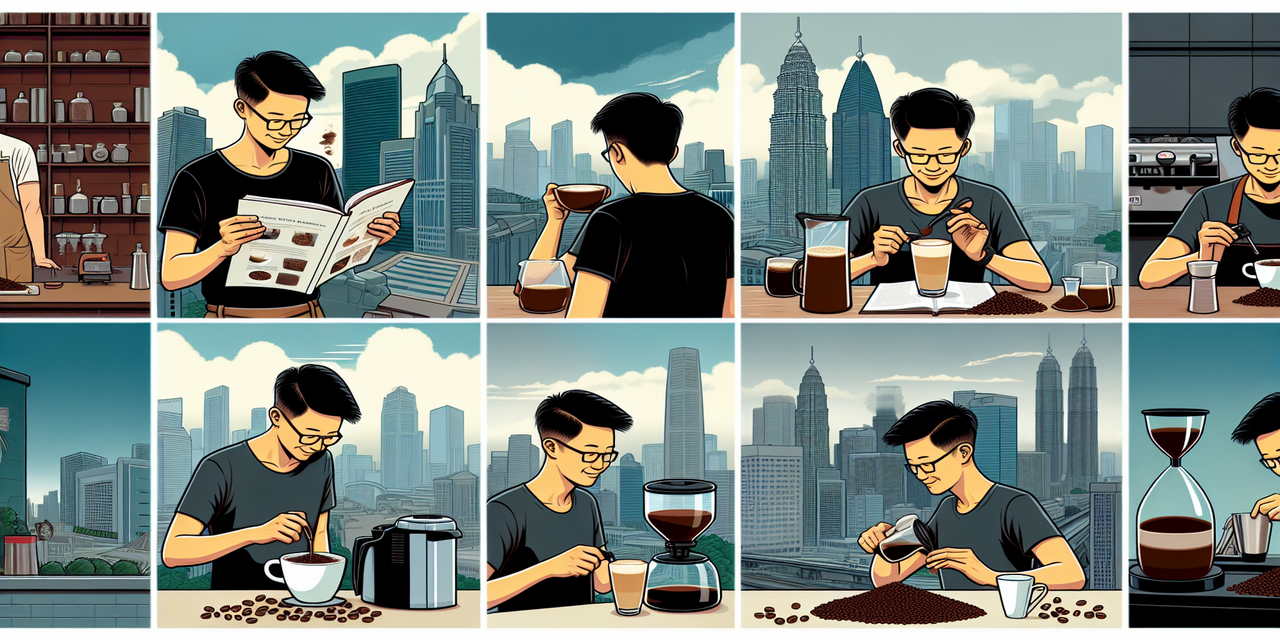How to Become a Barista Without Experience: Key Takeaways
- Self-education on coffee types and brewing methods is essential to build foundational barista knowledge.
- Gaining practical practice through home brewing and training workshops improves skills and confidence.
- Customer service skills and a strong resume highlighting transferable experience increase job prospects.
Becoming a barista without prior experience is achievable by learning coffee basics, practicing regularly, and applying strategically for entry-level roles.
This article guides you through the key steps for launching a barista career from scratch.
1. Educate Yourself on Coffee Basics to Become a Barista
Dive into the fundamental coffee knowledge that every barista needs. Familiarity with coffee terminology is critical to quickly adapt in a café setting.
Learn the names and characteristics of popular drinks like espresso, cappuccino, latte, and macchiato. Understanding these terms lets you communicate effectively with both coworkers and customers.
Next, study various brewing methods. Get to know how drip brewing, pour-over, French press, and espresso machines work. Each method demands specific skills and contributes to the taste and quality of the coffee.
By mastering this base knowledge, you'll be prepared to learn practical barista skills on the job faster.
2. Gain Practical Experience to Become a Barista
Hands-on practice is crucial for building confidence and technical abilities.
Practice Home Brewing
Start with purchasing basic coffee-making equipment like a grinder and a French press or a beginner-friendly espresso machine. Experiment with brewing your own coffee at home to understand the nuances of grind size, water temperature, and timing.
Try replicating café-style drinks to get a feel for milk frothing and espresso extraction. Frequent practice allows you to improve your technique before stepping into a professional environment.
Attend Barista Workshops or Courses
Look for local or online barista training programs that provide hands-on instruction with espresso machines and milk frothing. These courses offer valuable feedback and simulate real café situations.
Training helps you build essential skills more efficiently and gives your resume credibility.
Employers interested in hiring skilled baristas may also find value in our how to hire a Barista spotlight for effective recruiting strategies.
3. Develop Customer Service Skills for Barista Jobs
Being a barista is more than making coffee — it involves interacting positively with customers.
Work on your communication skills, including active listening and clear verbal expression. These help you take orders accurately and create a welcoming atmosphere.
Also, prepare yourself to handle difficult customer interactions calmly and professionally to maintain a positive café environment.
For tips on managing customer challenges, check out our how to handle difficult customers spotlight.
4. Build a Strong Resume to Land Barista Positions
Even without prior barista experience, you can craft a compelling resume by emphasizing relevant skills.
Highlight customer service or teamwork experience from previous jobs, volunteering, or school activities. These demonstrate your ability to work well in fast-paced, social environments.
Express your passion for coffee clearly, and show your commitment to learning barista skills. This enthusiasm can set you apart from other entry-level candidates.
Explore comprehensive guidance on writing standout resumes specifically for hospitality in our resume dos and don'ts spotlight.
5. Apply for Entry-Level Barista Jobs
Target local coffee shops or cafés that offer on-the-job training for new hires.
Be proactive by visiting cafés in person to introduce yourself and express your interest in becoming a barista. This personal touch can boost your chances of getting hired.
Apply to multiple spots to improve your likelihood of receiving offers and gaining practical experience.
If you're seeking interviews, reviewing common Barista interview questions can help you prepare effectively.
6. Continue Learning and Networking in the Coffee Industry
Your barista journey doesn't end once employed. Engage with coffee communities locally or online to learn from experienced baristas and stay updated on industry trends.
Consider pursuing certifications like the Specialty Coffee Association’s Barista Level 1. Credentials validate your skills and may open doors to better job opportunities.
Ongoing education and networking help you grow both technically and professionally.
Learn from inspiring professionals in our spotlight featuring a passionate Barista dedicated to the art and business of coffee.
Additional Resources to Help You Become a Barista
- Specialty Coffee Association – Offers education and certification for baristas.
- Barista Guild – A community and resource hub for aspiring and professional baristas.
- TIPS Certification – Training for handling alcohol responsibly, useful for baristas in establishments serving alcoholic beverages.
- U.S. Department of Labor – Information on labor laws and workplace requirements.
- Occupational Safety and Health Administration (OSHA) – Guidelines on workplace safety, important for café environments.
How to Become a Barista Without Experience: Conclusion
Starting a career as a barista without experience is very possible by focusing on self-education, practical practice, and customer service skills.
Building foundational coffee knowledge, gaining hands-on brewing experience, and cultivating a strong resume will help you stand out to employers.
Being proactive in applying, continuing your learning journey, and networking in the coffee community will further increase your chances of success and growth in the barista profession.
For those interested in broader hospitality roles related to bartending, which shares some skills with barista work, explore our bar tending career insights to see possible career pathways.

.png)

.png)
.jpg)